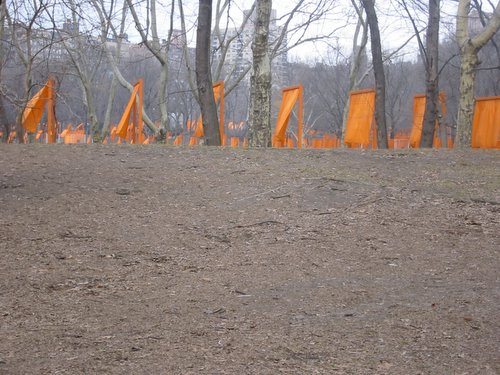What a frustrating book this is. I have had varied responses to much of Coetzee’s fiction, finding it anywhere from brilliant (Waiting for the Barbarians) to bloodless (Disgrace) to pretentious (Foe), so I didn’t get around to his first post-Nobel fiction until now. But I must say that I admire his willigness to put out a book that will completely alienate Nobel punters, as well as be so open to misinterpretation.
The book is a collection of “stories” (“Lessons”, they’re titled) about the elderly writer Costello, who, having long ago written a famous revisionist version of Ulysses from Molly’s point of view (called The House on Eccles Street), now listlessly attends conferences on various literary topics. She has no passion for these topics, and no shortage of contempt for the fanboys and other writers that attend the conferences. The one issue that does stir her to her feet is animal rights, which she pursues with the single-minded intolerance of the zealot, comparing animal slaughter to the Holocaust.
Few of the reviews of Elizabeth Costello have addressed some of the most perplexing problems of the narrative. James Wood, always keen on religious readings of fiction, insists on a liturgical interpretation:
Far from being evasive, I think that Coetzee is passionately confessing, and that his entire book vibrates with confession. The reference to Ivan Ilyich is the key. Simply put, Coetzee’s subject is death. Costello’s lectures are about the lives of animals, and that means also the human animal. It is by contemplating her own death that she can enter the suffering – the millions of deaths – of animals. Our mortality is animal mortality. And likewise, to think about animal death is to think of our own death.
What Wood ignores is how truly obnoxious Costello is. Her empathy for animals rings false because she treats those around her (her son, her colleagues, her ex-lovers, her fans) like garbage, simultaneously condescending to them while demanding indulgence for everthing she does. Worse, she’s hardly eloquent. Her arguments are irrational, trite, and mindlessly syllogistic:
“As for animals being too dumb and stupid to speak for themselves, consider the following sequence of events. When Albert Camus was a young boy in Algeria, his grandmother told him to bring her one of the hens from the cage in their backyard. He obeyed, then watched her cut off its head with a kitchen knife, catching its blood in a bowl so that the floor would not be dirtied.
“The death cry of that hen imprinted itself on the boy’s memory so hauntingly that in 1958 he wrote an impassioned attack on the guillotine. As a result, in part, of that polemic, capital punishment was abolished in France. Who is to say, then, that the hen did not speak?”
If I were Coetzee, I would be very worried that after writing a book in which specious arguments such as this take up so much room, the arguments would be mistakenly attributed to me. (Justifiably so: The Observer condemns him for holding Costello’s opinions, and David Lodge’s review gives entirely too much credit to her opinions.) Indeed, had I not read Coetzee’s other work and his essays, I’d be tempted to assign these views to him. But Coetzee has never written like this. His criticism is coldly rational, well-researched, and often insightful. (I highly recommend his book of essays Stranger Shores.) And I cannot imagine that Coetzee would ever take seriously the theses of Costello’s speeches. Coetzee has compared Costello to Christa Wolf and Doris Lessing, and I don’t believe the comparison is meant to be flattering. Both writers are polemicists notorious for deducing fictional circumstances from preconceived ideas, and so it is with Costello. She is partly, but not entirely, Coetzee’s strawman.
Oliver Herford’s perceptive review in the TLS is the only one to have gotten at Costello’s lapses qua fiction:
Costello is impatient of the proprieties of public argumentation, preferring “to think in similitudes rather than reason things out”. This is a novelist’s failing, perhaps, but it occasions some spectacular lapses. She starts, too, from positions of provoking extremity…but passes rapidly from violent identification to a blank disbelief in what she has undertaken to say.
Elizabeth Costello is a thin, disagreeable character and an obvious contrivance – an unreliable surrogate whose obsessions and inconsistencies are conventionally opposed but never effectually challenged; she does not stay even to answer her own idle self-questioning, of which there is an exasperating amount.
All this is painfully illustrated when Costello interprets other works of literature and philosophy. Herford points out that her interpretation of Kafka’s “Report to an Academy” is absurdly off the mark, but so are all of her interpretations. She disagrees with Thomas Nagel, saying she can know what it is like to be a bat. Of “A Modest Proposal,” she says:
If it is atrocious to kill and eat human babies, why is it not atrocious to kill and eat piglets? If you want Swift to be a dark ironist rather than a facile pamphleteer, you might examine the premises that make his fable so easy to digest.
In passages like these Costello reminds you of your freshman year roommate who lambasted you all year long for eating meat before giving up vegetarianism sophomore year. Or consider this gem concerning Ulysses, which she purportedly knew well enough to rewrite:
I do not like that other world, writes Martha Clifford to her pen pal Leopold Bloom, but she lies: why would she write at all if she did not want to be swept off to another world by a demon lover?
Martha Clifford’s typo (she meant “word”) has all sorts of resonances, but Coetzee’s meaning is clear: Costello has forgotten the context and has freely interpreted the passage to mean whatever she wants it to mean. She has imposed a tyranny of her own private meanings on everyone and everything.
And ultimately she is a tyrant, especially to her long-suffering son but also to nearly everyone she meets. Her “empathy” is actually the narcissistic projection of one’s own self on to the faces of the downtrodden, a common ailment of the terminally myopic. She sympathizes with people by imagining they feel just like her, unless they disagree with her, in which case she quickly dismisses them as inhuman morons. So it is with literature; if she cannot see herself in it, she dismisses it.
As a satire of the caprices of writers and of the unquestioning authority granted to their polemical pronoucements, Elizabeth Costello is grimly amusing, almost a middle finger to the Nobel Committee. (I suspect that Coetzee is deeply uneasy with their elevation of so many writers with deep moral flaws.) It’s hard not to agree with him after reading things like an interview with the hatefully senile Felipe Alfau. (Thank you Maud Newton for the link.) But especially in the last two sections, which are revisionist versions of Kafka’s “Before the Law” and Hofmannsthal’s “The Lord Chandos Letter”, Coetzee changes the terms. In the first, Costello is denied admission to heaven because she refuses to profess belief in any particular thing. In the second, she takes on the role of Lord Chandos’s wife, and portrays his epiphanies as those of Icarus:
But how I ask you can I live with rats and dogs and beetles crawling through me day and night, drowning and gasping, scratching at me, tugging me, urging me deeper and deeper into revelation–how? We are not made for revelation, I want to cry out, nor I nor you, my Philip, revelation that sears the eye like staring into the sun.
If this is the final “Lesson,” then the object of the lessons has been Costello herself. She has not practiced literary criticism or philosophy over the course of the book, but has she practiced literature? If so, what price has she paid for it? Hofmannsthal gave us the image of a man overwhelmed with profundity that transcended language, yet he expressed it so eloquently that it was easy to believe him. Whatever profundity that Costello has private access to, she is unable to express it: not through misinterpreting other people’s works, not through angry screeds, not through interpersonal relationships. Yet it clearly causes her torment, and for this she does deserve our sympathy. I think that this is what separates Coetzee’s book from the seemingly endless river of literature portraying writers in various states of breakdown and uncommunication: given the abnormality of the writer, he is more willing to see writers in the context of societal normality rather than placing them at the center. Elizabeth Costello is ultimately a portrait of a marginal figure, and her inner pain seems all the more disproportionate for it.
The book also appears to indict much writerly discourse, yet other people over the course of the book speak quite cogently, usually when calmly destroying Costello’s arguments. No, the problem is quite clearly with Costello herself, and since we are never given evidence of Costello’s prior writing talent, it’s impossible to say whether her reputation is deserved. No doubt she is unique and uniquely tormented, but what of it?
Throughout the book, people make the mistake of engaging in discourse with Costello to no positive effect. Perhaps Coetzee wishes to separate literature from the realm of debate, saying that writers are not the sort to participate in argument. They are best left alone to write their books, which then the public can make sense of. But beyond that, Coetzee makes a statement on how dangeous it is to take authors at their intent and at their literal meaning, as well as point out how authors can be their own worst advocates. Coetzee in his essays reads for subtext and subtlety, often questioning the placement of an idea in a literary work rather than engaging with it. With Elizabeth Costello, he has written a work that acts as a warning, since considering Costello’s ideas only leads to silliness and frustration.
The reaction of people to the book–predominantly a willingness to take Costello’s views seriously, as no critic other than Herford mentions Costello’s series of grotesque misreadings of other authors–seems to confirm Coetzee’s concerns. But Coetzee is not so monolithically harsh, since the book is simultaneously a portrait of the vacant inside of one of these authors, and her inability to believe anything truly. Is this, asks Coetzee, who we want to argue with and interpret? Is it wise to hold up the figure of the author and deem him or her a seer, a prophet, or a truthteller? No, better to treat the books autonomously and dispense with the author.








